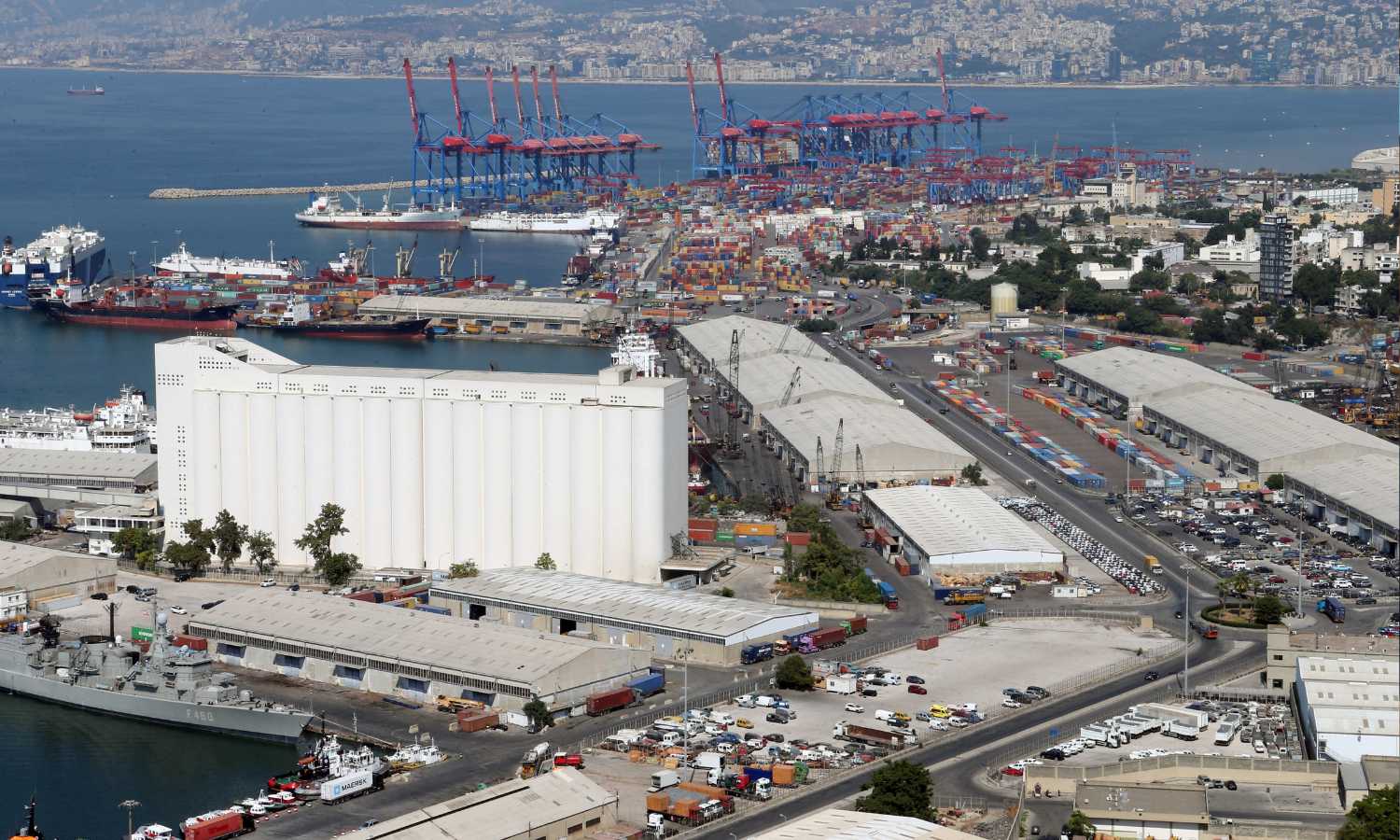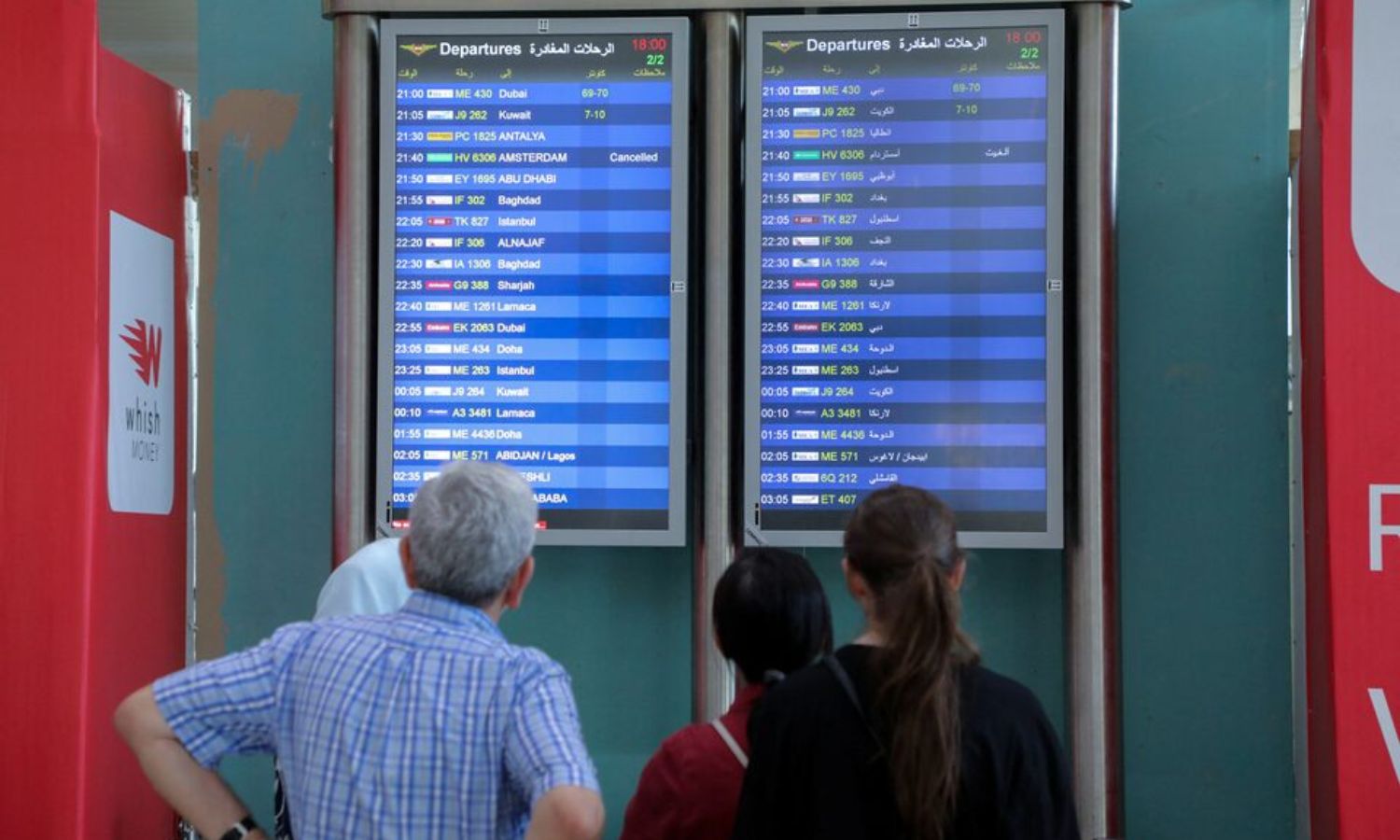



Enab Baladi – Jana al-Issa
Most of the economic crises that Lebanon has experienced, due either to political reasons or otherwise, have impacted the local economy in Syria. This raises questions at present about the effect of the ongoing Israeli escalation on Lebanon and its impact on the Syrian economy, and what might result if the war expands and its repercussions.
The escalation that began around a week ago, alongside the killing of top leaders in Hezbollah, has led to the displacement of thousands of Lebanese and Syrian refugees towards Syria. It has also directly affected Lebanon, as many countries have canceled their flights to Beirut, impacting the traffic to Syria which used to regularly go through Lebanese territory.
According to The National newspaper, Keren Uziyel, a senior analyst for the Middle East and Africa at the Economist Intelligence Unit (EIU), stated that Lebanon, which is suffering from several crises stemming from years of political stalemate and around 12 months of fighting between Israel and Hezbollah, could face a significant economic slowdown in early 2025.
Economic experts also believe that the escalating conflict might lead to an economic contraction in Lebanon ranging between 10% and 25% this year, causing destruction of vital sectors from agriculture to tourism and damaging critical infrastructure.
Before the escalation started, Lebanon was already suffering what the World Bank describes as one of the world’s worst financial crises since the mid-19th century. Its banking sector faced losses exceeding 70 billion dollars, and its currency had lost over 90% of its value since 2019 when the country defaulted on its debt for the first time in its history.
For the Syrian regime’s government, Lebanese territory is considered a primary gateway for its imports through official land crossings or ports. Many traders also rely on Lebanon for several unofficial matters, including obtaining foreign currency and smuggling it into Syria.
Additionally, the activities of illegal crossings between the two countries are very active with regards to smuggled goods, which fill the local markets.
It is impossible to separate what’s happening in Lebanon and its repercussions on the Syrian economy, which was previously affected by the Beirut Port explosion and the banking crisis, according to Ayman al-Dusouki, a Syrian researcher specializing in local administration and the political economy at the Omran Center for Strategic Studies.
In an interview with Enab Baladi, al-Dusouki added that the current issue is related to the duration and expansion of the ongoing confrontations and the increasing number of refugees arriving from Lebanon to Syria, considering the insufficient basic services, their poor quality, and the scarce economic resources. This influx of refugees will further strain government services and elevate the prices of essential goods and materials.
The impact will become more evident if the supply chain of goods and materials coming to Syria through Lebanon is disrupted, adding economic pressure on the state and Syrian residents in areas under regime control.
In this context, al-Dusouki believes that there are available alternatives for the regime, but they are either economically costly and fraught with logistical challenges or require political steps, such as relying on Turkey, which would require progress in normalization between the two countries.
Moreover, according to al-Dusouki, developments in Lebanon could affect the Syrian currency. However, the extent depends on the events’ impact on obtaining hard currency and the demand for the Syrian pound.

Travelers looking at the schedule of delayed and canceled flights at Beirut’s Rafic Hariri International Airport – July 28, 2024 (Reuters)
According to a report published by the Middle East Institute in August 2020, the Syrian economy is sensitive to developments in Lebanon due to its significant reliance on the Lebanese financial sector. Since the beginning of the war in Syria, Syrian banks lost most of their access to international financial markets, and transaction volumes sharply declined. Syrian individuals and institutions were among the major depositors in Lebanese banks. Although the total volume of Syrian deposits is unclear, the Lebanese Central Bank does not provide a breakdown of non-resident deposits by nationality.
It is also known that key Syrian businessmen used Lebanese tools to circumvent international sanctions and access dollars in global markets, according to the report.
Karam Shaar, director of the Syrian program at the Observatory of Political and Economic Networks and a doctor in economics, noted that the link between the Syrian pound and the Lebanese pound weakened after the shocks experienced by the latter in recent years. This could indicate that the currencies might not significantly impact each other, and thus the Syrian currency might not see any change due to the potential expansion of the war in Lebanon.
Shaar explained to Enab Baladi that regarding the trade activity between Syria and Lebanon, Lebanon recently raised bilateral trade fees with Syria, while the regime reduced these fees. In the absence of clear information about import and export volumes through Lebanon to Syria, the official borders almost seem inactive in this regard.
Trade activity here is limited to smuggling, where hundreds of crossings on the border are used by traders to transfer their goods to Syria, according to Shaar. He believes that the war might not impact this activity, which could mean that goods arriving in Damascus from Lebanon may not be affected.
The impact on trade movement to Syria through Lebanon is mainly tied to the operations of Beirut and Tripoli ports and their possible halt, as seen by researcher Karam Shaar.
if you think the article contain wrong information or you have additional details Send Correction